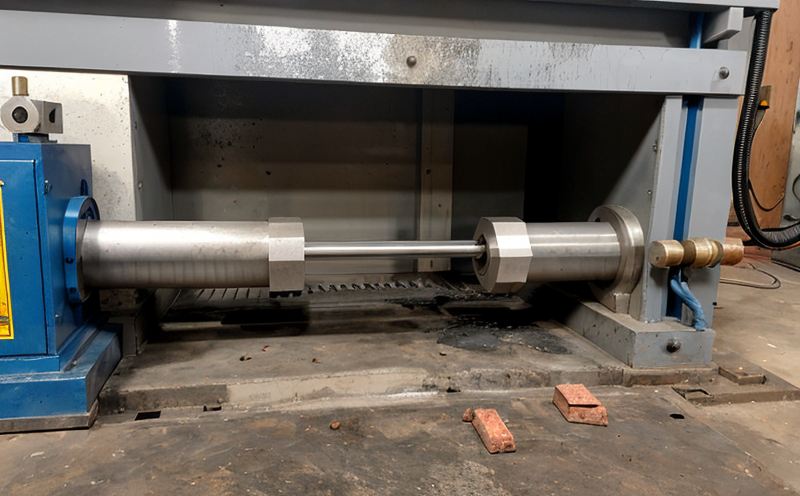ASTM D638 Tensile Testing of Plastics Limit of Detection and Quantitation Assessment Test
The ASTM D638 standard is one of the most widely recognized methods for determining tensile properties of plastics. This service focuses on evaluating the tensile strength, elongation at break, modulus, and other mechanical properties of various plastic materials using standardized testing procedures.
During this process, samples are carefully prepared according to ASTM D638 guidelines. Specimens must be cut into specified dimensions with precise tolerances to ensure accurate results. The testing equipment used for this service includes specialized tensile testers capable of applying controlled loads and measuring displacement accurately. These machines have high precision sensors that can detect even the smallest changes in force or extension during the test.
The ASTM D638 method involves loading the sample at a specified rate until failure occurs, typically between 50-250 mm/min depending on material type and size. Data collected includes peak load, fracture strength (tensile strength), elongation to break, and modulus of elasticity.
For the purpose of limit of detection (LoD) and quantitation assessment tests within ASTM D638, our laboratory uses advanced analytical techniques such as scanning electron microscopy (SEM) and energy-dispersive X-ray spectroscopy (EDS). These methods help identify any impurities or inconsistencies in the plastic samples which could affect test results. Additionally, we apply statistical analysis to ensure that all measurements fall within acceptable tolerances specified by ASTM D638.
Our testing environment adheres strictly to ISO 17025 standards ensuring consistency and reliability across each test run. This is crucial when comparing multiple batches or suppliers of plastic products, especially in quality assurance programs where small variations can have significant impacts on product performance.
The results from this service provide valuable insights into the mechanical integrity of different types of plastics used in various industries including automotive manufacturing, packaging, and consumer goods production. By understanding these properties early in development stages, manufacturers can make informed decisions about material selection and process optimization leading to improved product quality and durability.
| Industry | Application |
|---|---|
| Automotive Manufacturing | Evaluating the toughness and flexibility of bumpers, dashboards, and other structural components. |
| Packaging Industry | Assessing the strength and seal integrity of containers used for food packaging or pharmaceuticals transport. |
| Consumer Goods Production | Determining the suitability of plastic components in household appliances like washing machines or vacuum cleaners. |
Industry Applications
The ASTM D638 tensile testing service finds extensive application across various industries due to its ability to provide critical insights into the mechanical behavior of plastics. In automotive manufacturing, for instance, it helps assess the toughness and flexibility required in bumper systems while ensuring they meet safety standards.
Packaging companies utilize this method to evaluate container integrity, focusing particularly on seals used during transport or storage conditions where exposure to moisture might compromise product quality.
For consumer goods manufacturers, understanding how different plastic materials perform under stress is essential for designing durable yet lightweight products that appeal to end-users.
Competitive Advantage and Market Impact
The ability to accurately measure tensile properties using ASTM D638 offers significant competitive advantages in today's marketplace. By providing precise data on material performance, companies can differentiate themselves by offering superior products that not only meet but exceed industry expectations.
This service also plays a crucial role in regulatory compliance efforts, ensuring that all materials used comply with relevant regulations and safety guidelines. As consumer awareness around product quality continues to grow, having reliable test results becomes increasingly important for maintaining brand reputation and trust.
Use Cases and Application Examples
In the automotive sector, manufacturers rely on ASTM D638 testing to ensure that plastic components like dashboards can withstand extreme conditions without compromising safety or performance. For packaging companies, understanding how different types of plastics react under stress helps them choose materials best suited for specific applications.
Consumer goods firms benefit from this service by gaining deeper knowledge about the mechanical properties of various plastics used in their products, allowing for better design decisions that enhance both functionality and aesthetics.





